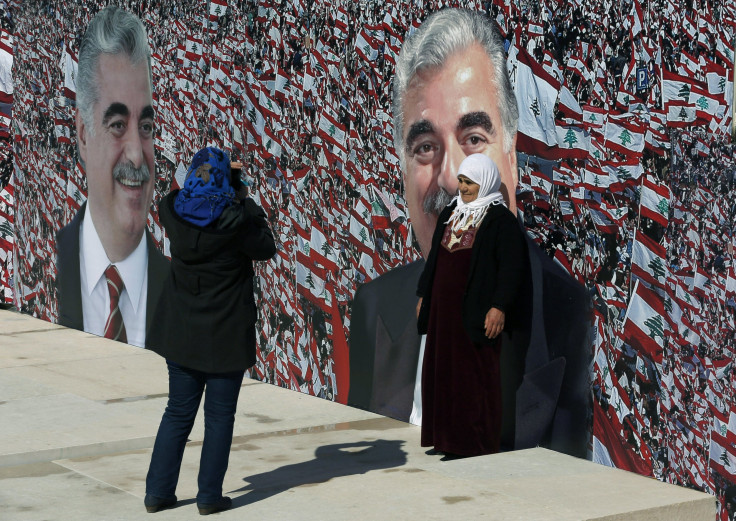Hezbollah Responsible For 'Many Assassination Attempts' On Lebanon PM Rafik Hariri

Former Lebanese Prime Minister Rafik Hariri knew he was being repeatedly targeted by Lebanon’s Shiite militant group Hezbollah before he was finally assassinated in 2005, in a massive suicide bombing that left a large part of downtown Beirut in ruins and ushered in major political change, according to testimony before the Special Tribunal for Lebanon. The Hague-based tribunal is investigating the murder, for which four people are on trial in absentia. They are suspected of being tied to the regime of Syrian President Bashar Assad, which has long held sway in Lebanon and may have been trying to get rid of an influential politician seen as a menace to its interests.
It has been more than a decade since a suicide bomber in the heart of Beirut detonated his vehicle on Hariri’s motorcade, killing the former PM and at least 14 others. The tribunal opened in 2009 and since then suspects in Hariri’s assassination have been narrowed down to at least four Hezbollah militants who had ties to the Syrian regime.
Hariri confided in another former prime minister, Fouad Siniora, who revealed the information on Tuesday on his second day of testimony. "Suddenly he turned around towards me and said, 'You know, Fouad, we have by now discovered many assassination attempts by Hezbollah targeting me,’” Siniora told the court on Tuesday, according to Lebanon's Daily Star. “This was extremely sudden and astonishing for me.”
Hezbollah is Iran’s most powerful proxy group in the region, but at the time of Hariri’s assassination, its existence largely depended on the Syrian regime next door. The Syrian regime has denied any involvement in Hariri’s assassination.
“It was an act of war and an act of political terrorism, and almost everyone suspected at once that the Syrian government did it,” journalist Michael J. Totten wrote in his book “The Road to Fatima Gate.”
Syria stepped into Lebanon in 1976 at the beginning of the 15-year-long civil war, operating under the premise of restoring order. What ensued was that Lebanon would be essentially under Damascus' control until Hariri’s assassination, which provoked an anti-Syrian backlash which resulted in the so-called Cedar Revolution. Hariri and Assad clashed in more ways than one, but their main point of contention was that Assad had the power to do away with Hezbollah, a U.S.-designated terrorist organization, but would not.
"[Hariri] told me: 'I will never forget so long as I live the humiliation and the insults directed to me by President Bashar Assad in the presence of his three officers'," Siniora told the court on Monday, the first day of his testimony, according to the Middle East Monitor.
Hezbollah’s continued existence also precludes stable relations with Lebanon’s other neighbor, Israel. Assad’s strongest ally was, and remains, Iran, whose Shiite regime would never accept that the Syrian government disarm Hezbollah. Iran and Syria have long used Hezbollah to wage a proxy war with Israel.
Almost immediately after Hariri was killed, a civilian uprising broke out demanding the end of the Syrian presence. A year later, Lebanon was a battleground once again, this time for fighting between Israel and Hezbollah.
© Copyright IBTimes 2024. All rights reserved.





















